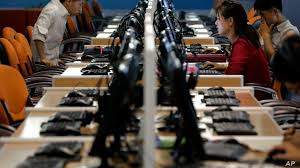North Korea Hacked Pfizer to Steal COVID-19 Vaccine Data, South Korea Says

North Korea launched a cyberattack on U.S. drugmaker Pfizer to steal the company’s COVID-19 vaccine data, according to South Korea’s intelligence agency.
Officials with the National Intelligence Service briefed lawmakers Tuesday in Seoul during a closed-door hearing with lawmakers.
This is the second time in recent months that Pyongyang has been accused of hacking pharmaceutical companies to retrieve data about their work in creating a new coronavirus vaccine. Microsoft said in November that hackers from both North Korea and Russia attempted to break into seven prominent companies, including Pfizer and its German-based partner, BioNTech.
North Korean leader Kim Jong Un long claimed that his country has no COVID-19 infections, but quickly closed its border with China as the pandemic took hold. The decision cut off impoverished North Korea from its neighbor and key trade and diplomatic ally.
WHO approves 2 AstraZeneca vaccinesThe World Health Organization announced Monday it has approved two versions of the AstraZeneca-Oxford COVID-19 vaccine for emergency use, action that will boost global supplies in coming weeks.
The WHO said the vaccines are safe for those 18 and older and will be distributed through the organization’s COVAX vaccine-sharing initiative targeting middle- and low-income countries.
The newly approved vaccines are produced by AstraZeneca-SKBio in South Korea and the Serum Institute of India. AstraZeneca's vaccine makes up most of the doses in the COVAX initiative.
The approval allows countries to speed up domestic regulatory approval to import and administer the vaccines. It took the global health body less than a month to assess data on the quality, safety and efficacy of the drugs and grant the emergency-use approval.
"We now have all the pieces in place for the rapid distribution of vaccines. But we still need to scale up production," WHO Director-General Tedros Adhanom Ghebreyesus told a news briefing from Geneva on Monday.
Britain mandates traveler quarantineAlso Monday, Britain began a quarantine program for travelers arriving from 33 “red list” countries determined to be at high risk for COVID-19, as part of its effort to keep variant strains of the coronavirus out of the country. The coronavirus causes the COVID-19 disease.
Under the program, anyone entering Britain is required to spend 10 days quarantined in a hotel room. Arrivals from countries not on the list are required to quarantine at home for 10 days and take two tests for COVID-19, the disease caused by the coronavirus.
Meanwhile, with the rate of new infections declining and as more of its citizens are being inoculated, a growing list of places is beginning to relax restrictions imposed to blunt the recent surge of new cases. Hong Kong announced Tuesday that it will ease restrictions beginning Thursday, allowing beauty salons, theme parks, movie theaters and sports facilities to resume operating, while extending how long restaurants and bars can stay open.
The Israeli Cabinet also announced Tuesday that it will reopen shopping malls, markets, museums and libraries to the general public effective Sunday, as long as people have proof they have been inoculated.
Link: https://www.voanews.com/covid-19-pandemic/north-korea-hacked-pfizer-steal-covid-19-vaccine-data-south-korea-says











